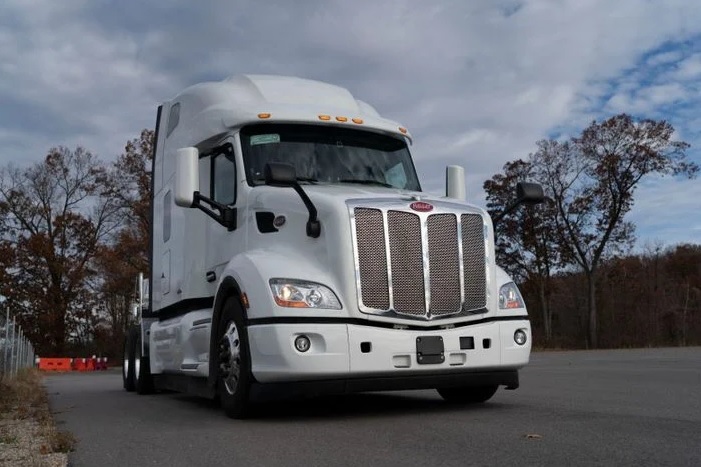VTTI to Study Autonomous Trucks in Mixed Fleets
A primary objective of the study is to show how automated driving systems can be implemented in a safe, reliable, repeatable, and commercially viable manner in mixed fleets.
A new four-year study, led by the Virginia Tech Transportation Institute (VTTI) in partnership with a 16-member team, seeks to provide the trucking industry, regulators, and the general public with practical guidelines for safely integrating automated driving systems into current fleets.
The research is funded by a $7.5 million grant from the U.S. Department of Transportation, according to a press announcement from VTTI.
“The introduction of automation into heavy trucks is expected to have a profound effect. However, it is still unclear how these vehicles should best be integrated into fleet operations with conventional trucks,” said Richard Hanowski, director of VTTI’s Center for Truck and Bus Safety, in the statement.
The VTTI project will assemble a team that includes automated driving system technology developers, trucking fleets, six state departments of transportation, and other supporting organizations.
The operational plan, formally called a fleet concept of operations, will include best practices for technology deployment, driver training, installation and maintenance, inspection procedures, insurance, roadway readiness, data, and cybersecurity for automated driving systems.
“We are excited to be part of this industry-leading collaboration to help identify and solve some of the challenges of deploying automated commercial trucks within a fleet setting,” said Sherry Sanger, executive vice president of marketing at Penske Transportation Solutions.
“As the lead maintenance and vehicle supplier to this program, our truck leasing and logistics business units will help spec the vehicles, define best practices for the installation and maintenance of automated driving systems, manage the overall maintenance of test vehicles, and road test the vehicles in a delivery setting.”
The team will work with safety technology developer Pronto to demonstrate the safe and gradual integration of various levels of advanced automation technology into fleet operations on public U.S. roadways. Pronto’s technology will be retrofitted into existing heavy vehicles to support this research.
Common driving situations, such as queuing in ports, drayage operations, and exit-to-exit scenarios will be tested. Notably, one demonstration will involve a highly automated truck driving across the country in the first uninterrupted cross-country journey of its kind.
A primary objective of the study is to show how automated driving systems can be implemented in a safe, reliable, repeatable, and commercially viable manner. As such, the team intends to demonstrate a realistic, “mixed-fleet” approach and generate data of practical importance to the trucking industry, regulators, and the public at large.
“Hub Group is committed to advancing technologies that make our roads safer, benefit our customers and reduce our impact on the environment,” said Phil Yeager, president and COO of Hub Group, a $4 billion supply chain solutions provider and one of only two trucking companies on the VTTI project team. “Autonomous Driving Systems represent great potential, and we’re thrilled to work alongside Pronto and the rest of the team on making safe, practical integration of autonomy a reality for our fleet and our nearly 5,000 drivers in the foreseeable future.”
Roadshows are being planned to give truck drivers, fleet managers, government officials, insurance reps, inspection agencies, and the general public the opportunity to learn firsthand about commercial vehicle Automated Driving System (ADS) technologies.
Originally posted on Fleet Forward
by Staff
Source: https://www.truckinginfo.com
FLEET MANAGEMENT NEWSLETTER
Join to our NEWSLETTER; you’ll get the latest news, articles, publications, training, conferences, events, congresses, and white papers related to Fleet Management, Mobility and Automotive IN your email fortnightly.




